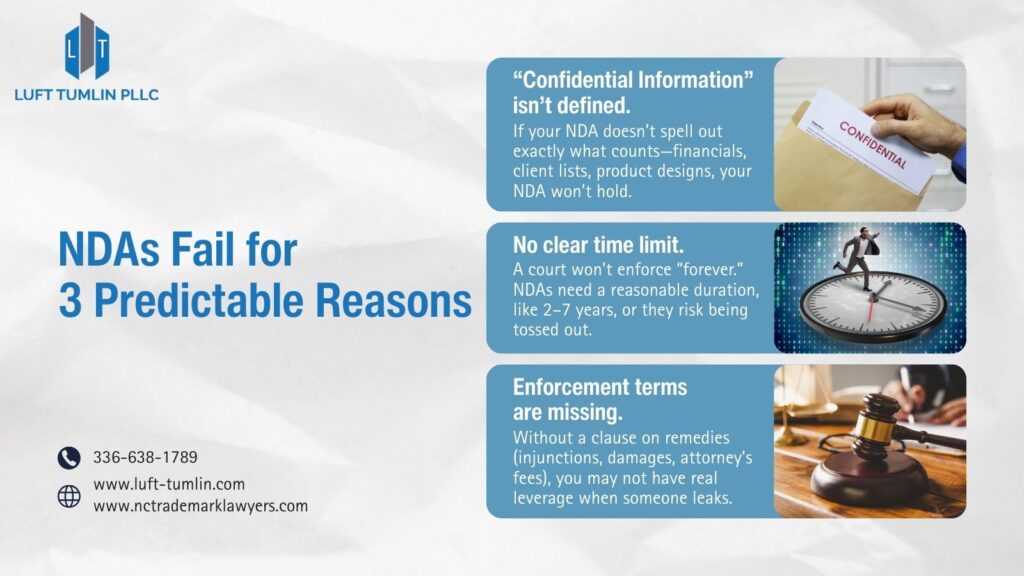A lot of business owners assume an NDA is rock solid. In reality, most of the ones I review fall apart in the same places.
The first issue is usually around “confidential information.” If it isn’t spelled out—financials, client lists, product designs—it leaves too much room for argument.
Another weak spot is timing. Courts don’t like “forever” promises, but they’ll usually stand behind a reasonable window, often somewhere between two to seven years. (Note that “trade secrets” can have a longer protection period.)
And finally, the teeth: without clear remedies—like injunctions, damages, or attorney’s fees—you may find you don’t actually have leverage when someone breaks the deal.
It’s worth pulling up your NDA and checking whether it’s built to protect what you actually care about. A shaky agreement can give a false sense of security, and that’s the last thing you want when sharing sensitive information.

